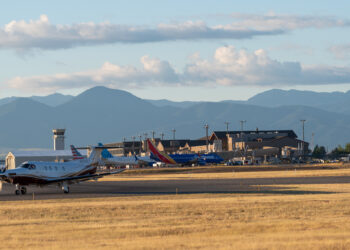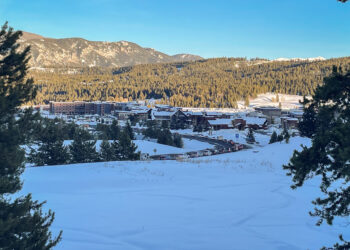By Madelyn Beck
UM School of Journalism Legislative News Service
HELENA – Montana legislators are considering a bill that would give $1 million to the Montana Department of Justice for a potential lawsuit against states that hinder Montana’s coal trains from getting to larger markets. Namely, markets like China.
While House Bill 244 doesn’t specify what cases the money would fund, the statute would make sure ports in Washington and Oregon are open to coal traffic.
Some ports are currently under construction, but opposition from environmental groups and local governments is stalling progress.
This leaves Montana in a bind. Republican Rep. Duane Ankney of Colstrip, home to four coal-fired power plants, is one of the strongest proponents for funding litigation to open the Washington and Oregon ports.
“This is very important to Montana,” Ankney said. “Our future in the coal markets [is] in the international market. It’s very important that we have access to those ports on the West Coast.”
Opponents of the bill, like Republican Rep. Art Wittich of Bozeman, aren’t too keen on spending $1 million with so much uncertainty.
“We don’t even know what the litigation would be, who the parties would be, what the issues would be … I don’t see the value of setting aside a million dollars of taxpayer money to think about it,” Wittich said.
Speaking to arguments that this money would be wasted if court cases don’t happen, Jon Bennion of the Montana Department of Justice says all this money would then flow back into state coffers.
“This money, as we see it, is restricted for this sole purpose,” Bennion said. “If it is not used, it will be refunded at the end of the next biennium.”
The bill faces opposition from groups like Greenpeace, the Blue Skies Campaign and Bozeman Climate Alliance, which have participated in rallies to stop coal traffic in Missoula and Helena, largely protesting the negative climate impacts of perpetuating coal use.
Helena resident Mike Lee has another issue with fighting to open the ports. He said if those ports open, it’s going to likely double the yearly rail traffic, meaning longer wait times at the tracks.
“How many hours of idling automobile traffic associate with 1,000 and maybe more hours of blocked vehicular traffic at all of Helena’s railroad crossings,” Lee said. “Not to mention those blocked crossings in other Montana cities.”
Proponents, on the other hand, argue that the state needs to fight for these ports or face missing out on jobs, as others capitalize on growing coal demand overseas.
Patrick Barkey, University of Montana Director of the Bureau of Business and Economic Research, said U.S. coal demand is stagnating and could actually drop. But if coal can be exported through western ports, Barkey said, it will likely find a long-term market as China’s economy and its hunger for coal grows rapidly.
Currently, coal trains largely use ports in British Columbia, which are reaching maximum export limits.
Montana is not alone in trying to fund these litigation efforts. Wyoming’s legislature passed a similar bill last year at about half the size of Montana’s $1 million proposal.
The Montana Finance and Claims committee will likely vote on this bill in the next few weeks, deciding whether to pass it off to the full Senate, or kill it where it sits. The bill passed the House 53 to 45 in February.
Madelyn Beck is a reporter for the Legislative News Service at the University of Montana School of Journalism. She can be reached at madelyn.beck@umontana.edu.












